Job seekers considering a career in the spa and wellness industry will want to highlight their natural aptitude for this field in their resumes. Becoming a spa manager requires self-motivation, planning, business management skills, and understanding of wellness principles and practices. An outline for a spa manager position must highlight your strengths and abilities that can transfer from another industry or place to this job. While you may have many responsibilities listed on your current resume, the focus here is on highlighting those attributes that make you stand out as the perfect candidate for a spa manager job. If you’re looking to transition into this type of position at another company, you will need to tailor your resume accordingly. This guide will walk you through the process of creating a compelling overview the right way. From identifying relevant career fields to writing an eye-catching and effective summary statement, we’ll cover all the tips and tricks to get you started with your first resume!
Spa Manager Resume Example

Download This Spa Manager Resume as PDF
Spa Coordinator Resume Example
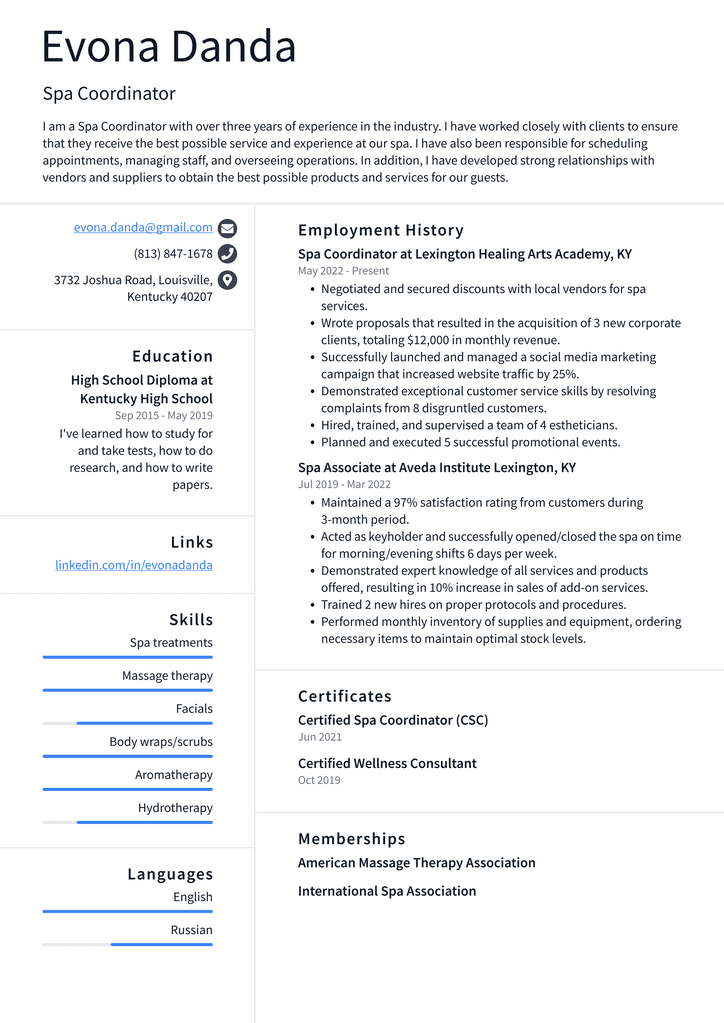
Download This Spa Coordinator Resume as PDF
Spa Director Resume Example
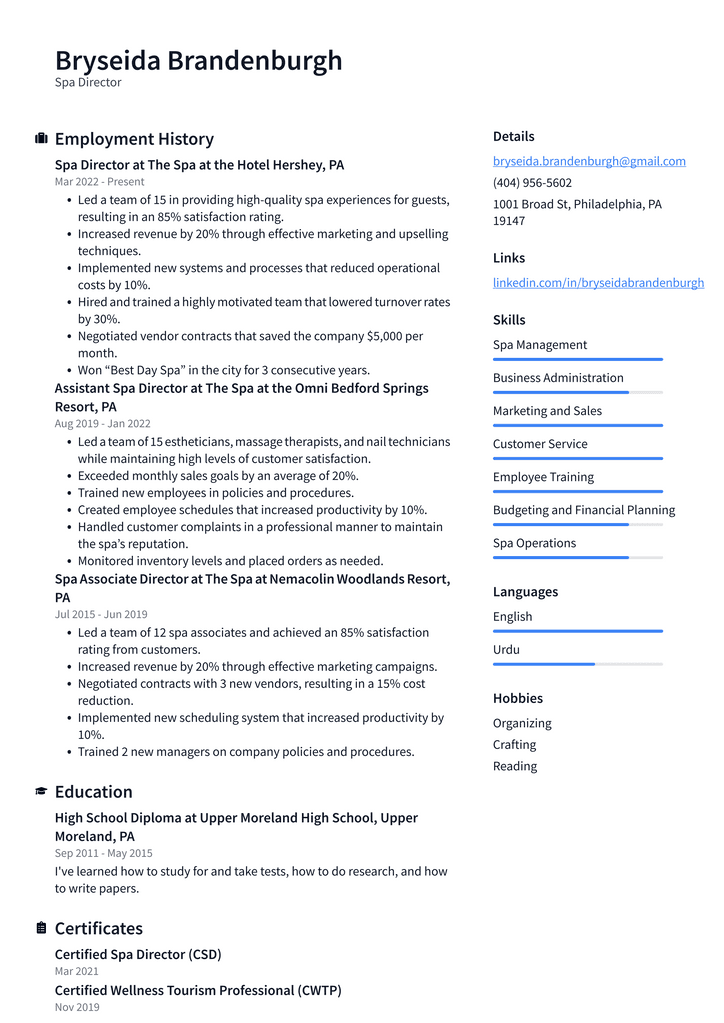
Download This Spa Director Resume as PDF
Spa Consultant Resume Example
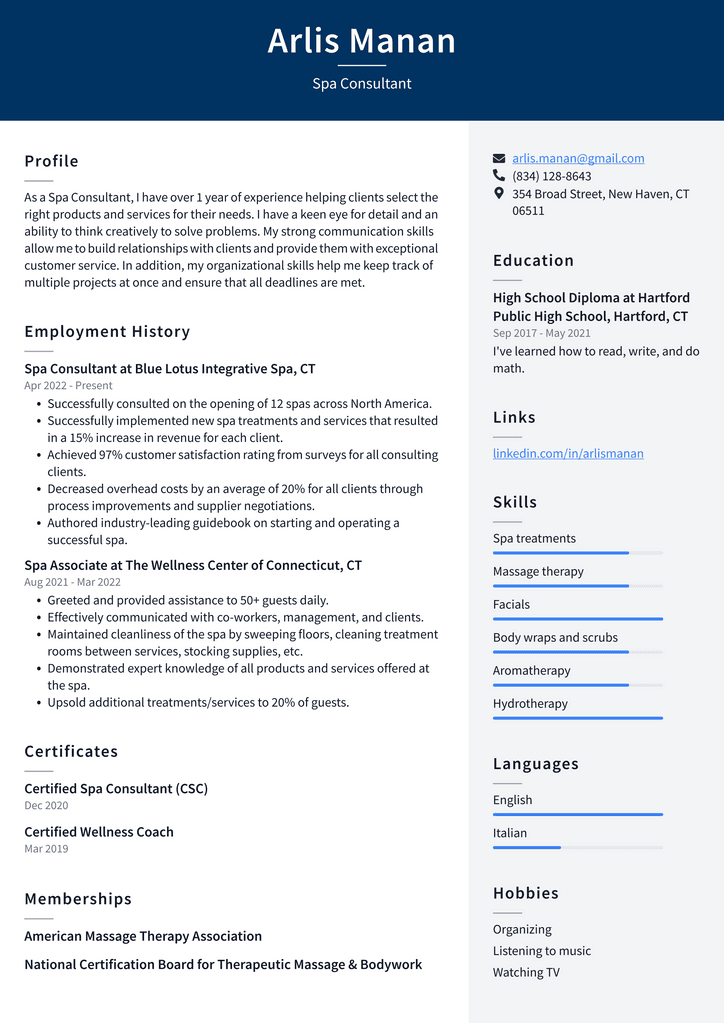
Download This Spa Consultant Resume as PDF
Spa Therapist Resume Example
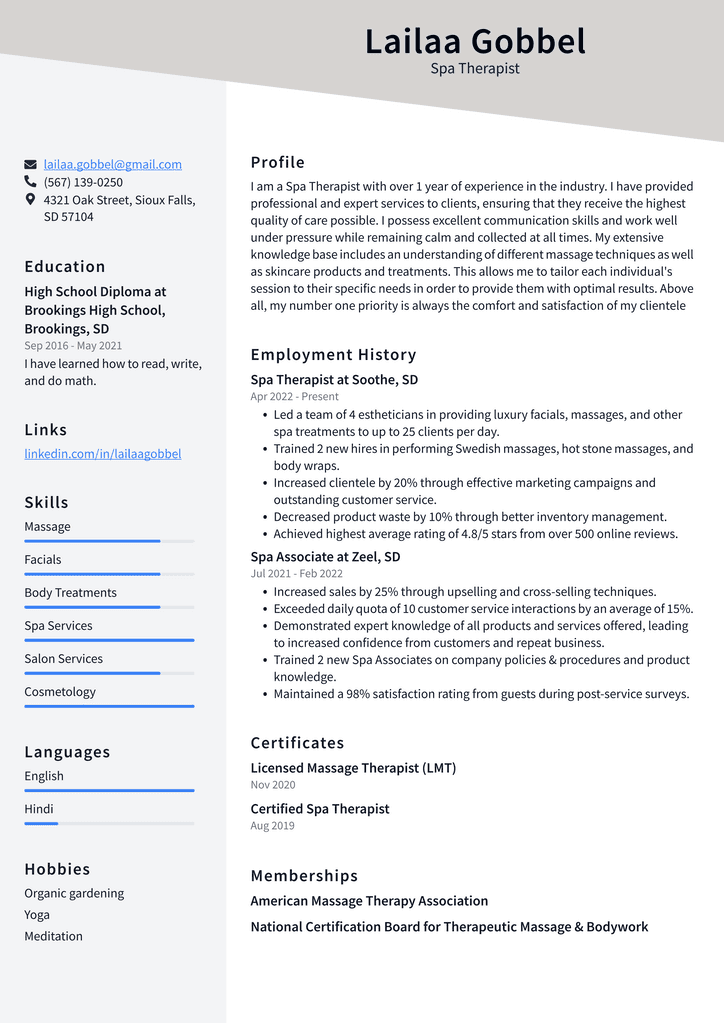
Download This Spa Therapist Resume as PDF
Spa Receptionist Resume Example
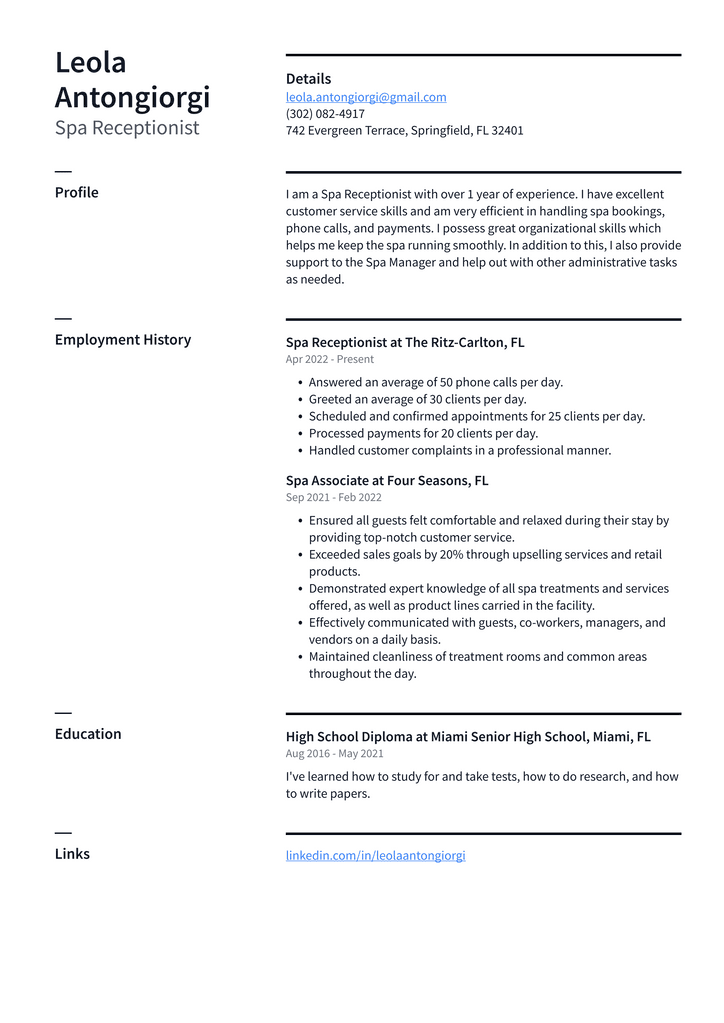
Download This Spa Receptionist Resume as PDF
Spa Attendant Resume Example
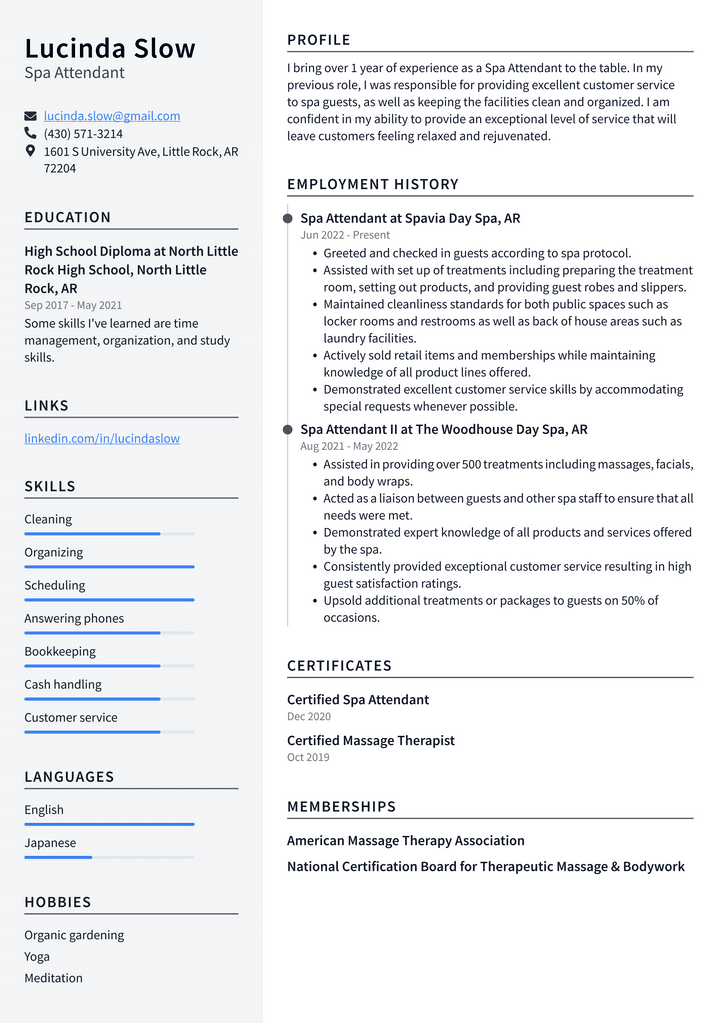
Download This Spa Attendant Resume as PDF
Create a Strong Summary Statement
A summary statement is a brief excerpt at the top of your resume that summarizes your experience and skills. It’s the first thing a hiring manager will read, so you must ensure it’s compelling and well-written. Start your resume with the Summary Statement, which should be about two sentences long. The first sentence should be about your professional experience, and the second should be about your traits and qualities. You want to make sure you’re highlighting your most relevant skills for this particular job, so if a different position brought out other skills, you would like to make a separate resume for each class. When writing your summary statement, you’ll want to think about how to emphasize your key strengths and traits. You may want to consider the following: What do you want them to know about you? Have you ever accomplished something unique, or are you passionate about a specific cause?
List Relevant Skills First
One of the most effective ways to optimize your resume is to list your skills first, followed by your experience. This allows your hiring manager to see exactly what you’re capable of doing and gives them a clear idea of your potential and value as a candidate. When listing your skills, break them into three categories: functional, transferable, and specialized. Practical skills are essential for most positions, like organization or communication. Transferable skills are applicable across many fields and are often gained from previous work experience. Some examples of transferable skills include teamwork, leadership, and customer service. Finally, specialized skills are relevant to the field you’re applying to and often come from education or certification. For example, if you’re applying for a medical assistant position, you may want to list CPR certification, bloodborne pathogens training, or first aid certification as specialized skills. You can also include computer skills as technical skills only if they are genuinely relevant to the position.
Highlight Your Key Skills
When you’ve listed your critical skills, it’s time to dig a bit deeper and further explain why these skills are essential to your success in the position. You will want to emphasize these skills and provide examples of how they helped you in your previous roles. You may also want to list your transferable skills and explain how they help you in this position. To make your resume stand out, list your skills in bold letters. The bold font will make the critical points about your skills stand out, which will help the hiring manager remember them easily. You may also want to use a different font or color to emphasize specific words.
Sum up Your Experience
When listing your experience, include your most recent job first, followed by your previous positions in chronological order. You can also list your education and training at the bottom of the page. You may want to break up your experience section into different subsections, especially if you have a lot of different positions listed. For each class, you will want to include the company name, your job title, the dates you worked there, and a brief description of your duties and responsibilities. You can also have skills you learned or used in your previous positions. Remember that you want to keep the section about your experience short and sweet. You don’t want to bore the hiring manager with too many details and information. Instead, you want to highlight your most relevant positions and skills again.
Mentioning GPA or Coursework
Let’s say you’ve graduated with a degree in management or marketing and are applying for different positions in those fields. You may want to list your GPA or coursework and grades at the end of the resume. You may want to word it “graduated with honors” or “with a GPA of x.x.” It is not necessary to list your GPA in the first resume. It can be added to the summary in a later version of the employer asks for a version with GPA. You may also want to consider listing any leadership positions in campus organizations or clubs. This can help demonstrate your leadership skills, which are highly valued in many industries.
Conclusion
Ultimately, creating a great resume is all about knowing who you’re targeting, what they’re looking for, and tailoring your resume to match their needs. If you’re hoping to land a job in the spa and wellness industry, you’ll want to highlight your natural aptitude for this field in your resume. Becoming a spa manager requires many self-motivation, planning, and business management skills, as well as an understanding of wellness principles and practices. A resume for a spa manager position needs to highlight your strengths and abilities that can transfer from another industry or place to this job.